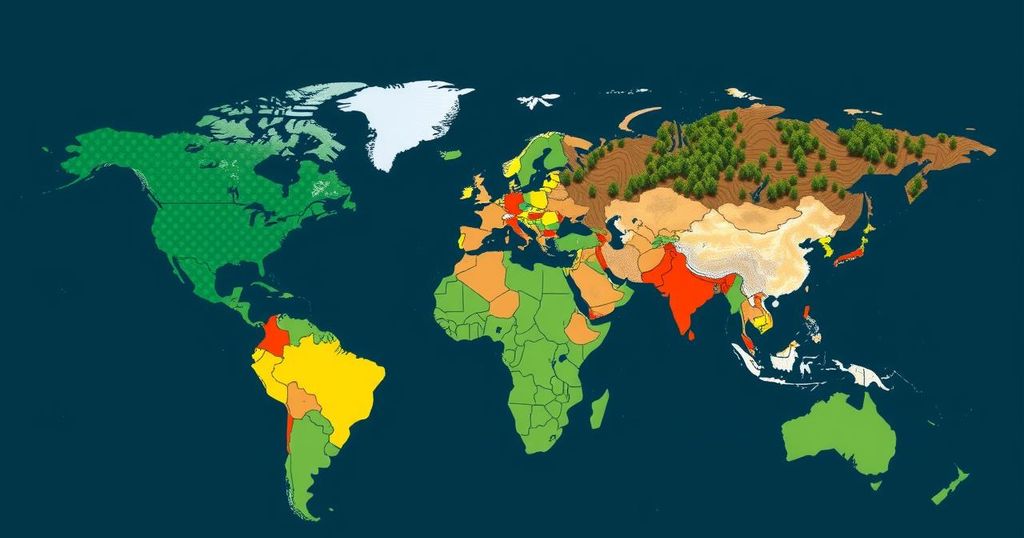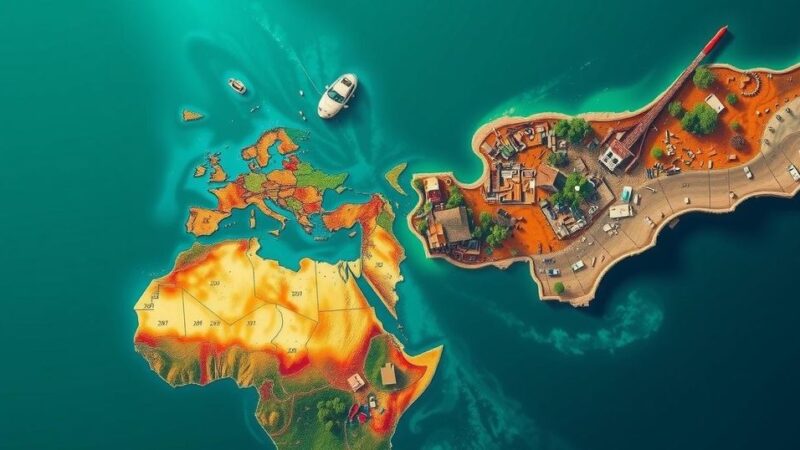Recent climate-related disasters, exemplified by Cyclone Freddy in Malawi, have spurred wealthier nations to pledge funding for “loss and damage” as compensation for low-income countries disproportionately affected by climate change. The agreement aims to alleviate financial burdens caused by extreme weather events. However, experts caution that the currently pledged funds may not be sufficient to meet future needs, which are forecast to escalate rapidly as the impacts of climate change grow more severe.
In the wake of Cyclone Freddy, which devastated southern Malawi in 2023, Christopher Bingala’s family faced severe hardships when floodwaters destroyed their home and livestock. Fortunately, he received a payment of approximately $750 as part of a novel compensation program addressing climate change-related losses. This initiative emerged from a broader agreement at the COP 27 climate summit, wherein wealthier nations committed to a fund designed to assist low-income countries experiencing the effects of climate change, despite their minimal contributions to global emissions.
Despite the pledge of around $720 million from nations including the European Union and the United States, climate experts argue that these funds may be inadequate as extreme weather events intensify. Negotiations at the ongoing COP29 climate summit in Baku, Azerbaijan, focus on determining the requisite financial support owed to developing nations, which heavily bear the consequences of climate-induced disasters. Philip Davis, Prime Minister of the Bahamas, emphasized the need for accountability among industrialized nations that contribute significantly to global emissions.
Cyclone Freddy’s devastation prompted the displacement of about 650,000 individuals in Malawi, with many facing dire food shortages while seeking refuge from the floods. The cash compensation received by Bingala was distributed by GiveDirectly, a non-profit organization working to alleviate poverty through unconditional cash grants. Rather than merely recovering from this catastrophe, the funds allowed Bingala to relocate and rebuild in a less vulnerable area.
In Malawi, where such financial support can represent two years of income, the program exemplifies a pilot initiative aimed at establishing a sustainable system for compensating loss and damage related to climate change. Yolande Wright from GiveDirectly noted the vulnerability of low-income households, emphasizing their severe lack of protective measures against extreme climate events.
The urgent requirement for comprehensive loss and damage funding is expected to escalate as climate disasters become more severe. Prime Minister Davis indicated that in the aftermath of Hurricane Dorian in the Bahamas, national debt increased critically due to climate-induced recovery costs. Observers recognize that many nations advocate for a broader application of these funds to include proactive measures against future climate threats.
As humanitarian crises become transnational, the consequences of inaction may reverberate beyond immediate borders. The projected financial needs for loss and damage could reach $250 billion annually by 2030. Davis cautioned that if affluent nations fail to act, they may face catastrophic outcomes as climate refugees become an increasing concern.
The phenomenon of loss and damage compensation arises as low-income countries face the harsh realities of climate change while contributing minimally to its causes. The establishment of funding mechanisms to support these nations reflects a growing recognition of their plight. The COP climate summits serve as critical platforms for negotiations on such issues, with wealthier countries increasingly pressured to accept responsibility for their environmental impact. This situation starkly contrasts with the economic capabilities of these poorer nations, which often lack sufficient resources and infrastructure to withstand climate-related disasters. The Cyclone Freddy disaster serves as a poignant example of how vulnerable communities are affected drastically by changing climate patterns. Responses necessitate the commitment of wealthier nations to fund recovery and adaptation efforts, highlighting a shift towards a cooperative international framework to address climate equity in the face of existential threats. Notably, the urgency of such measures is compounded by accelerating rates of extreme weather events, underscoring the necessity for immediate action to avert a spiraling crisis in global climate management.
The need for targeted funding to address climate-related damages in lower-income countries has never been more pressing. As exemplified by the experiences of individuals like Christopher Bingala in Malawi, the innovative compensation funding seeks to provide immediate relief and facilitate long-term recovery in the wake of catastrophic climate events. However, ongoing negotiations and the distribution of pledged funds remain critical to ensuring that the needs of the most vulnerable populations are effectively met. The conversations at COP29 hold the potential to shape the future of climate finance, emphasizing the global responsibility to support communities disproportionately affected by climate change. Failure to act not only threatens these nations but also poses risks to the broader international community, as climate impacts do not adhere to national borders. The call for accountability and increased contributions from wealthier nations reflects an urgent appeal for proactive measures to combat the growing challenge of climate change, ensuring a sustainable and equitable future for all.
Original Source: www.mainepublic.org






